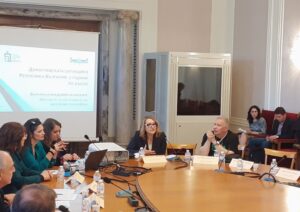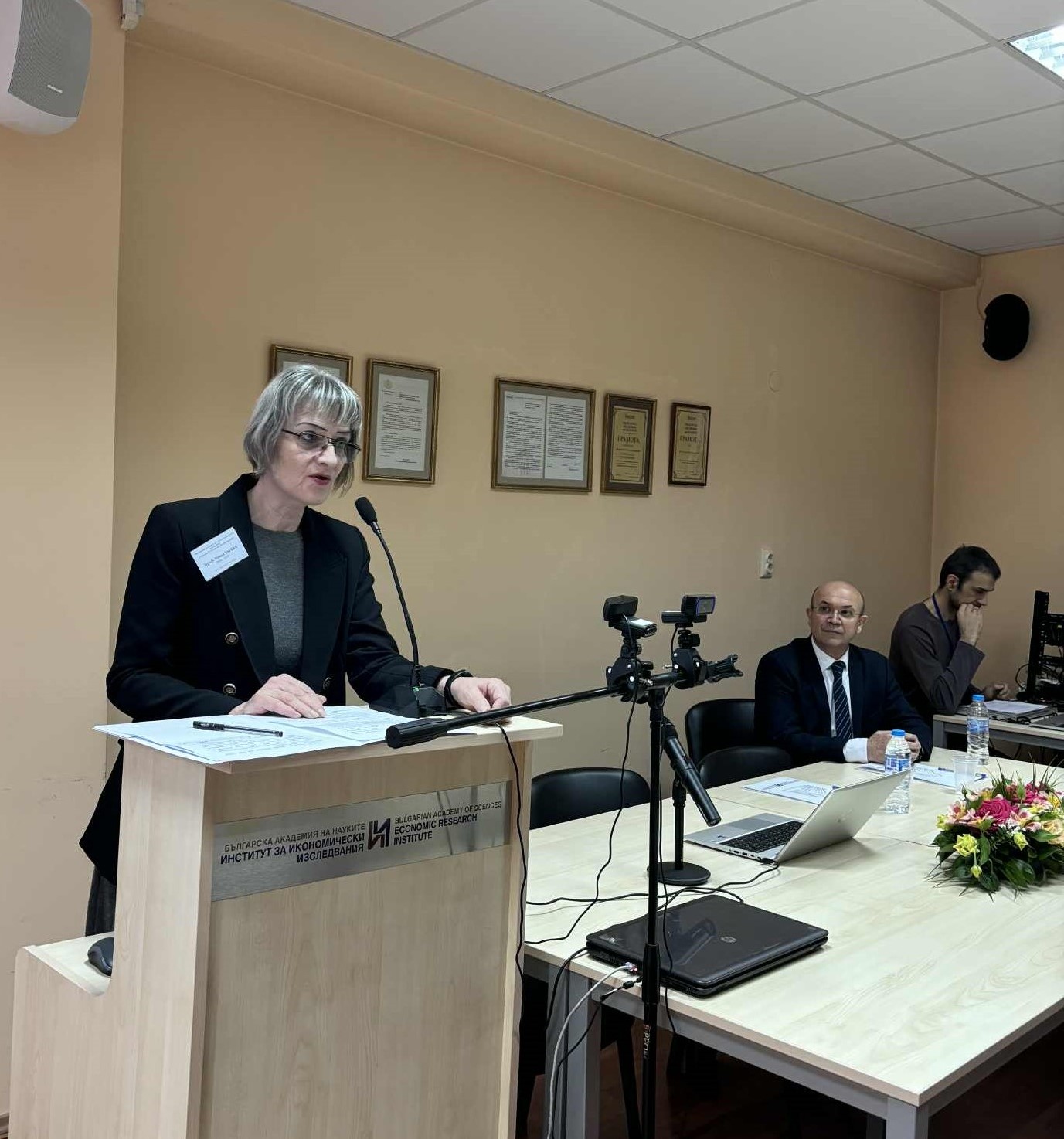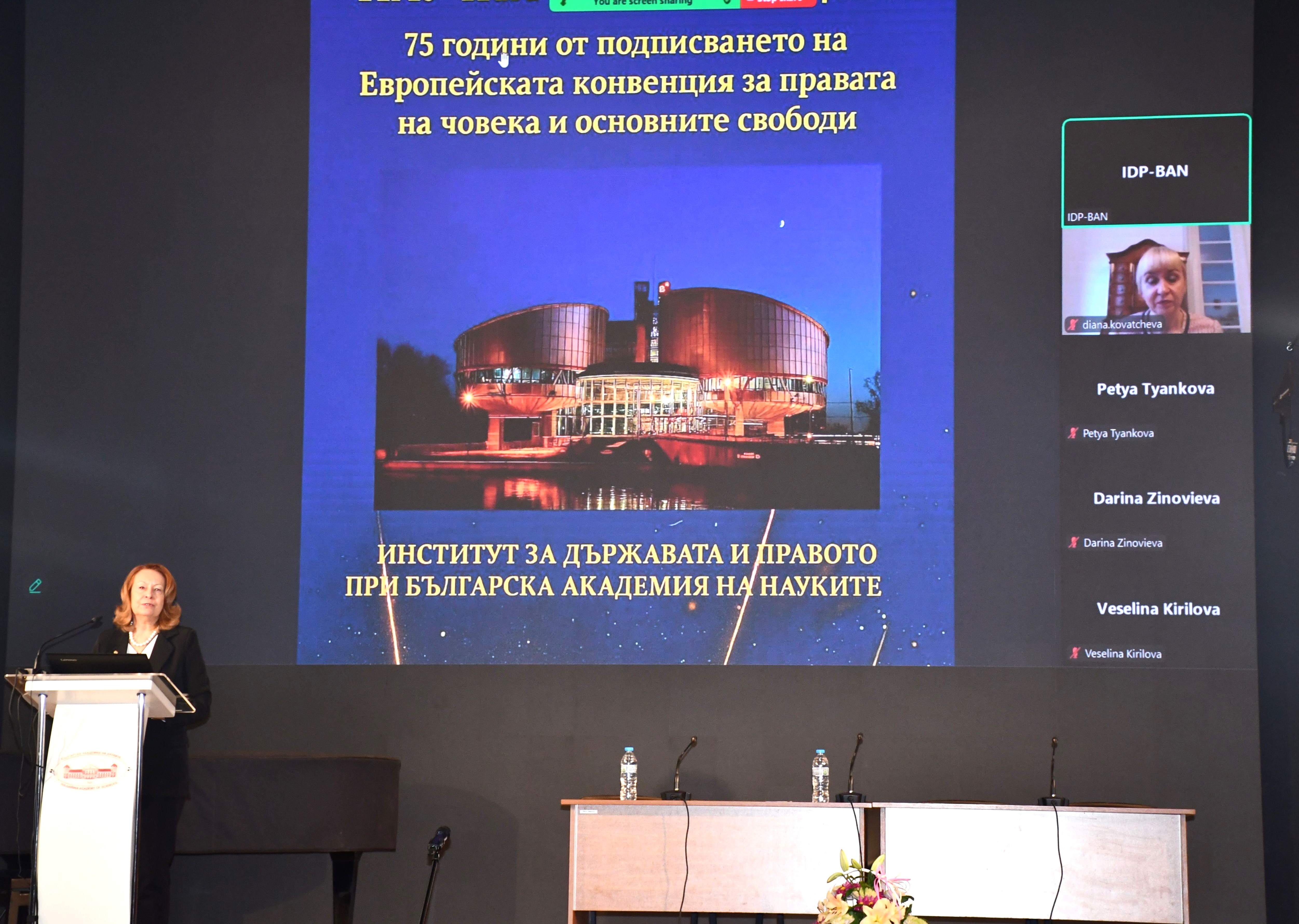On April 30, a round table on “Demography – Trends, Problems and Solutions” organized by Minister Gutsanov was held at the National Assembly in which scientists from the Institute for Population and Human Studies at the Bulgarian Academy of Sciences (IPHS – BAS) presented papers on the trends and ways to overcome the demographic crisis in Bulgaria. The Director of the Institute, Prof. Antoaneta Hristova, pointed out that this discussion was a continuation of the analysis of the demographic crisis conducted by the Institute for Population and Human Studies 7 years ago. Prof. Hristova pointed out with regret that the scientific forecasts made by the Institute had come true and Bulgaria was falling into the most pessimistic scenario of a rapidly ageing and declining population. The dimensions of the demographic crisis were further developed in the specific reports of the BAS scientists.
The report of Assoc. Prof. Elitsa Dimitrova stressed that despite the slight increase in the birth rate in recent years and the increased desire of families to have a third child, the country had entered a process of “inertia of reverse growth”, in which the trend towards population shrinkage had become a difficult to reverse process. Assoc. Prof. Stoyanka Cherkezova highlighted a series of trends such as the significant differences in mortality rates between different regions in the country. The analysis of Assoc. Prof. Cherkezova presented data showing that life expectancy in Bulgaria would increase by nearly 10 years if premature mortality, caused by cardiovascular disease, were reduced. Assoc. Prof. Spas Tashev highlighted the possibility of attracting people from the Bulgarian communities in the Western Balkans, Moldova and Ukraine as an effective tool to alleviate the demographic difficulties in Bulgaria. The report of Prof. Kremena Borissova-Marinova focused on both the ageing of the workforce and the increasing economic activity among people in pre-retirement and retirement age. The analysis of Assoc. Prof. Nikolay Tsekov focused on the increased negative processes of depopulation of large regions in the country and their gradual transformation into a “demographic desert”. The report of Prof. Ilona Tomova, on the other hand, was devoted to the ethnic imbalances in Bulgaria. The analysis focused on the persistence of significant ethnic inequalities in Bulgarian society and especially in the persisting distances between Roma and other ethnic groups in the country.
MPs, representatives of the National Statistical Institute, the Ministries of Education and Science, Finance, Health, the National Association of Municipalities as well as a wide range of civil society representatives took part in the subsequent discussion.








